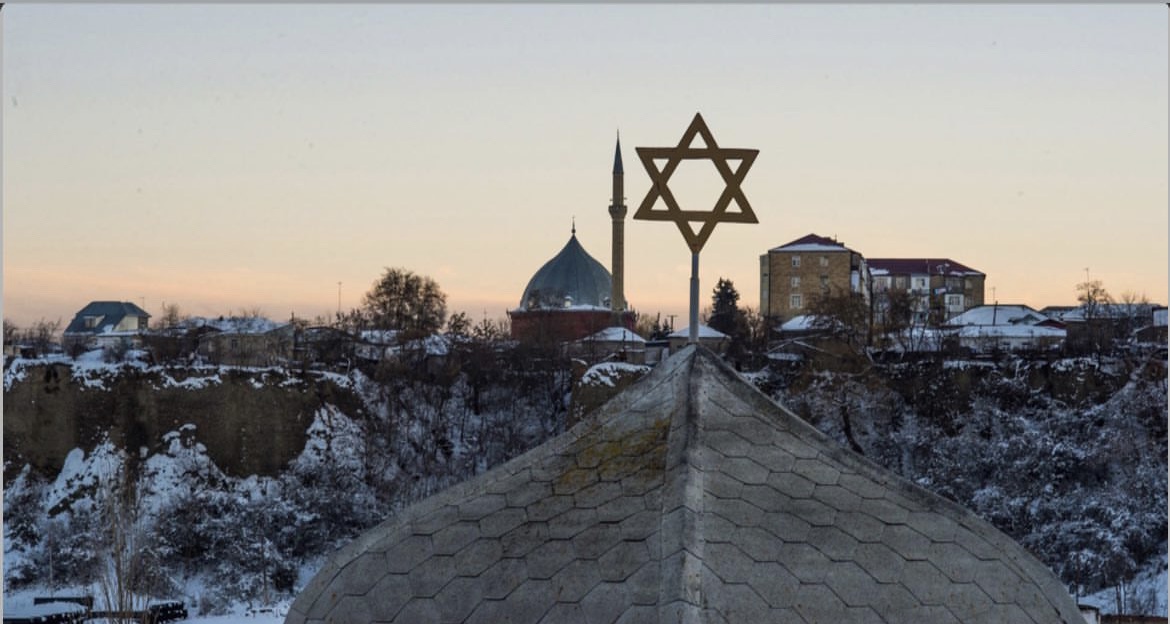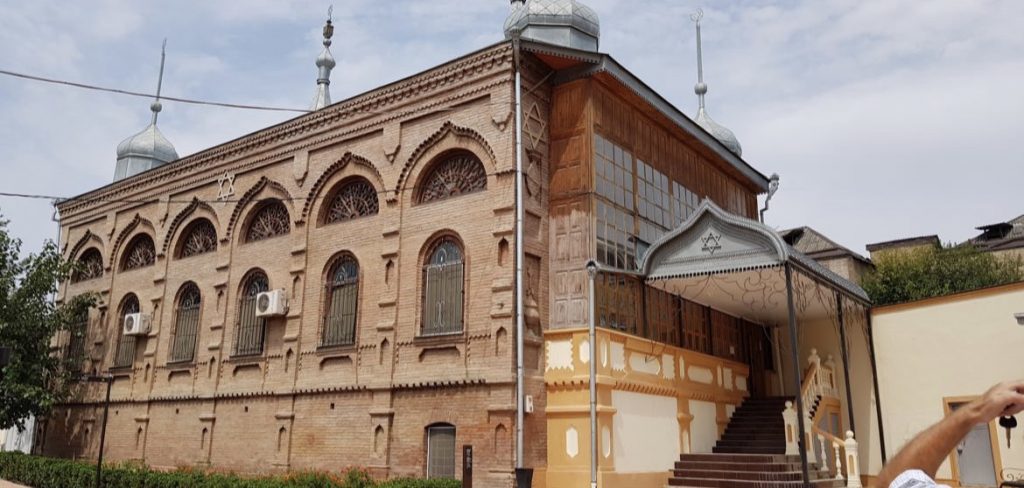The Shiites Who Love You
An all-Jewish town, joint ceremonies, and the surprising offer of a Rabbi
Rafael Nabizade

In March 2023, Azerbaijan opened an embassy in Israel for the first time, bringing years of prospering security, economic and tourist relations between the countries to a new high.
For some, the friendship between Israel and the Shiite neighbor of Iran is a surprise.
Not for me.
I am a secular Shiite Muslim from Azerbaijan, and since my childhood, I have been interested in Jewish history, traditions, and culture. My affection for Judaism reflects a deeply rooted tradition in my country.
Azerbaijan’s Jewish community comprises Ashkenazi, Georgian, and Mountain (Caucasus) Jews and has existed for thousands of years.
The Mountain Jews claim their ancestors came to the region following the Babylonian Exile.
Baku’s European Jewish community was the largest in the South Caucasus. The city’s industrialization following the 1850s oil boom attracted qualified immigrants, including Ashkenazi Jews.
Despite making up only 4.5% of the total population in 1913, the local Jewish community played a prominent role in advancing medicine, law, and business.
Red Town in the Quba district in the northeast of the country is the world’s only remaining all-Jewish town outside of Israel. It owes its name to the red-tiled roofs of its houses.
The Jewish presence in the region dates back 2,600 years. Approximately 3,000 people live today in Red Town, speaking a unique dialect of Persian, Judeo-Tat, among other languages.
The “Jerusalem of the Caucasus” has two synagogues. One is the Six Dome Synagogue, which is open only in the summer. The Gilaki synagogue opens its doors for prayers in winter. The Museum of the Mountain Jews has recently opened, documenting a rich history and showing that history to be an inseparable part of Azeri history.
Azerbaijan is an example of Jewish-Muslim coexistence. The country has always been proud of this heritage, promoting equality and tolerance among all faiths, and enabling the Jewish community to thrive and prosper in ways unfamiliar in other parts of the Muslim world.
It is common for Azerbaijanis to celebrate holidays together. Non-Jews attend Seder meals, while Jews attend Easter and Nowruz celebrations.
I took part in numerous Jewish holiday celebrations held in both Ashkenazi and Mountain Jews synagogues.
In December 2021, I joined other non-Jewish Azeri guests in Hanukkah celebrations in Baku led by Chief Ashkenazi Rabbi Shneor Segal. We prayed together and lit the candles of the Menorah.
Rabbi Segal also hosted me for a Shabbat dinner at the synagogue in Baku. When the Rabbi poured kosher wine for me to drink, I kindly declined, reminding him gently that I am a Muslim. He quipped by saying that when a Rabbi pours it, you cannot refuse. I drank.
The day before Azerbaijan opened an embassy in Israel, one of my friends, a Mountain Jew from Red Town, called to congratulate me on the occasion.
He told me that local Islamic leaders presented him with an award for helping build a mosque in a nearby town. The Muslim community had been unable to complete the construction due to financial and technical difficulties. However, over the course of two months, he was able to raise funds and secure the necessary permits to get construction started again.
A few weeks ago, when I called a Shiite Azeri friend to set a time to meet during my visit home to Baku, he told me he would not make it. The reason: he was busy meeting with the leadership of a local synagogue about raising funds to build a mikveh for the community.
Such is coexistence in Azerbaijan – communities helping each other and combining their efforts, intellect, and kindness.
Iran, Azerbaijan’s southern neighbor and another predominantly Shiite Muslim nation, aims to wipe the State of the Jews off the map and treats Iranian Jews as second-class citizens.
This is a far cry from Azeri realities.
Historically, except for a brief period when Nadir Shah of Iran ruled the area and under the Soviet occupation, antisemitism has been a foreign concept in Azerbaijan. The country’s Tourism Attaché to Israel, Jamilya Talibzadeh, claims that even under Soviet rule, Azerbaijan’s national leader, Heydar Aliyev, opposed Soviet desires to destroy matza-making machines.
Unlike in Europe and America, synagogues in Azerbaijan have no security, and their doors remain unlocked even at night. There is no reason to fear thieves, let alone antisemitic bigots. Jewish men can proudly walk in the streets of Baku wearing a kippah (or a Star of David necklace) without the risk of being attacked. Jews who have come to think of Shiite Islam as an enemy should keep in mind the existence of a secular Shiite nation where Jewish life is welcomed and protected, and where Israel finds a trusted friend.

